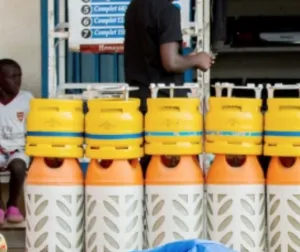
Could undermine’ clean cooking targets Lack of bankable projects
The government seeks to reduce the percentage of households using wood fuel for cooking, from 79.9 per cent, in 2017, to 42 per cent, by 2024.
According to Philbert Dusenge, a project coordinator in the Rwanda Development Bank (BRD), the package targets to replace use of firewood in rural areas, and charcoal in urban areas, by introducing more efficient clean cooking stoves.
Theophile Dusengimana, the environmental and climate change policy specialist at the Ministry of Environment, said highly efficient stoves required on the market can reduce fuel use by 30-60 per cent, lowering pressure on forests and climate-harming emissions.
In rural areas, he said, there is a need for improved or efficient cook stoves that use firewood, briquettes and pellets as well as biogas and cooking gas. In urban areas and the commercial food industry, he noted, there is a need for cooking gas, electricity and improved cook stoves that use pellets, wood, and green charcoal.
The Rwanda Green Fund (FONERWA) will support the clean cooking transition and prioritize investments according to their ability to increase access to clean fuel, improve consumer safety and support decarbonization,” he said, making a case for government subsidies for clean cooking technologies.
“There are over 130 companies in the association and the number keeps increasing. So, they should invest in cleaning cooking technology to help the government meet the 2024 targets. But they need the capacity to know how to do it. We are training them on how to design bankable projects to be financed by banks such as BRD and other sources of funding,” he said.
“We came up with a clean cooking solution that uses electricity. Those who will buy stoves that use electricity will be paying in installments. We expect the $20 million initiative to finance our project but first, we need skills,” said Jean Claude Daddy Sekanyambo, the Business Development Manager at Solektra Ltd, a company that is developing a clean cooking project.